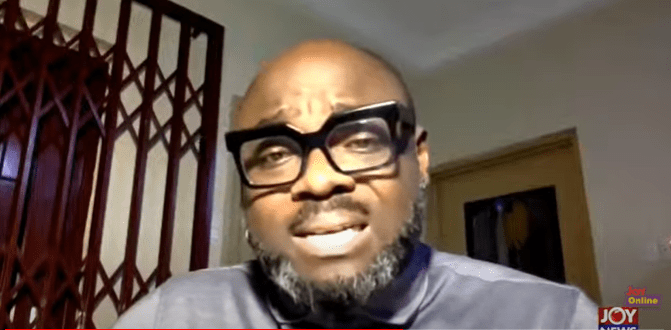
Audio By Carbonatix
Associate Professor of Finance at the University of Ghana Business School (UGBS), Professor Lord Mensah says Fitch's downgrading of Ghana’s Long-term Foreign-Currency Issuer Default Rating (IDR) to B-, with a negative outlook, should not be taken for granted.
According to him, the situation, if not handled well, could create dire consequences for the country’s economy in the years to come.
Speaking on JoyNews’ PM Express on Monday, Professor Lord Mensah explained that the new rating means that Ghana will face more difficulties raising funds from the international market in the future.
“If Ghana has been downgraded by a margin, which is a B, and it has a negative outlook, it tells you that yes indeed, the investor needs to be careful and in the end, if you’re bringing your money to the Ghanaian environment you have to be careful, because the ability to pay keeps on degenerating over the years,” he said.
He stated that as a result of a lack of investors’ confidence in Ghana’s ability to pay back debts, the country will be forced to raise money at a higher cost which may further exacerbate the debt situation in the country deepening the country’s economic woes.
“When it happens like that, Ghana going to the market to raise money, we’re either going to raise money at a higher cost or we may not get the money at all. But then of course we may have to ask, what is the quantum of the investor’s funds globally that are moving Ghanaians or the Ghana government to be able to attract when we go onto the Eurobond market?
“Now we’re not attracting much so effectively, if we take a global investor who wants to diversify, obviously he would want to pump some money into our environment, but that is going to be at a higher cost.
“And in the end, it also depends on the government signals on the ground as to how urgent we need money. If the government is desperate for money, then by hook or crook, we may borrow at a higher cost and in the end the consequence will be that our debt will keep on growing,” he said.
He added that “If you take our debts over the years you can clearly see that sometimes it’s not the principal that is growing, it’s the interest rate that is growing, and coupled with it being in a foreign currency, we turn out to be struggling in terms of raising the dollar to pay back our debt.”
“So effectively, the impact is a very, very huge one and it’s not something that we should take for granted,” he said.
Background
International ratings agency, Fitch, downgraded Ghana’s Long-Term Foreign-Currency Issuer Default Rating (IDR) to ‘B-‘ from ‘B’ with a negative outlook.
The downgrade of Ghana’s IDRs and Negative Outlook reflect the sovereign’s loss of access to international capital markets in the second-half of 2021, following a pandemic-related [COVID-19] surge in government debt.
Fitch in a report said “this comes in the context of uncertainty about the government’s ability to stabilise debt and against a backdrop of tightening global financing conditions. In our view, Ghana’s ability to deliver on planned fiscal consolidation efforts could be hindered by the heavier reliance on domestic debt issuance with higher interest costs, in the context of an already exceptionally high interest expenditure to revenue ratio.”
It pointed out that Ghana’s effective loss of market access to international bond markets increases risks to its ability to meet medium-term financing needs.
Latest Stories
-
BoG to tighten monetary policy in half-year 2026
2 minutes -
Parliament approves GH₵357 billion budget for 2026
8 minutes -
MAX and Bolt announce strategic partnership to power electric mobility and vehicle ownership in Ghana
24 minutes -
Greater Accra poultry farmers association says it was excluded from gov’t ‘Nkoko nkiti nkiti’ initiative
38 minutes -
Michael Adangba survives dawn road crash en route to Bolgatanga
42 minutes -
Court remands 40-year-old man for alleged murder
42 minutes -
AngloGold Ashanti Obuasi mine donates fire tender to boost emergency response in municipality
44 minutes -
Gov’t introduces sliding-scale mining royalties to capture price gains
55 minutes -
Global Africa Summit Accra 2025 rallies investors, diaspora and policymakers to boost trade and growth
56 minutes -
New research suggests a better way to fight littering in Ghana
57 minutes -
We must protect our own – Adutwum spokesperson calls for Ashanti solidarity
1 hour -
FDA shuts down 7 Foreign shops in Kumasi over unapproved, foreign-labelled products
1 hour -
13 arrested as Central East Police crack down on crime in Senya Beraku enclave
2 hours -
Kumasi residents raise alarm over poor street lighting ahead of Christmas
2 hours -
Police swoop in Kintampo nabs 13 in drug bust, seizes cannabis and tramadol
2 hours

